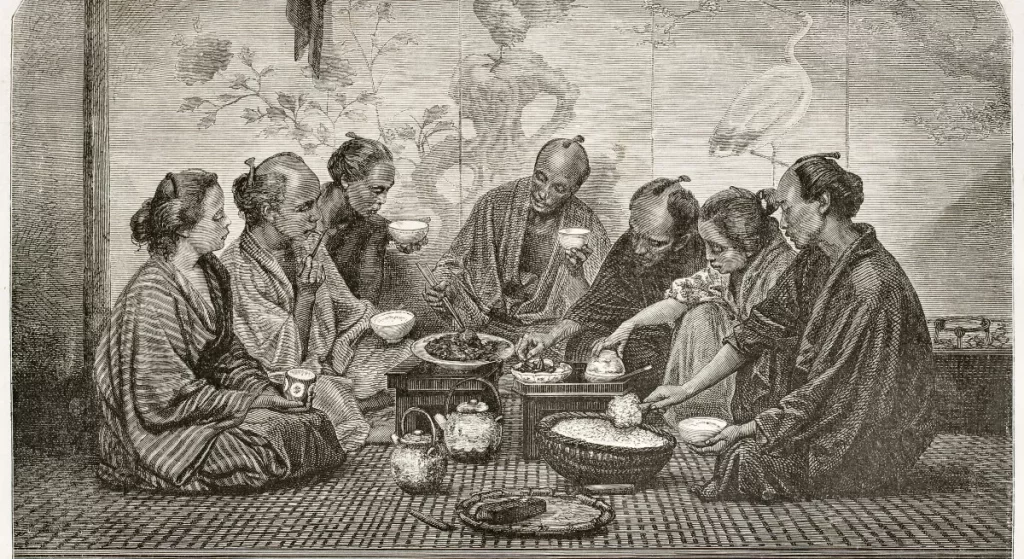By: AJ Witte
This past week we learned about many different things regarding life and aesthetics in the Tokugawa era. However, one of the most interesting things that we read about was the concept of ie as it pertains to the development of the close knit corporation like families seen throughout the Tokugawa period. I would like to therefore contrast the concept of ie to American capitalism and how we measure and structure corporations. I would like to preface this by saying that this is by no means a commentary on either capitalism or the Japanese system of ie, I just found it interesting the various similarities that seemed to crop up as I was reading this specific section of the chapter.
One of the key similarities that I found was the shared emphasis on the importance of corporate interest and continuity. In the case of the ie system, this meant that decisions regarding property, status, and advantage were made by the male head of the household, specifically only as a representative and steward of the ie itself. This ensured that the interests of the family or household were prioritized over those of any individual member. Much like how a CEO or the president of a company will be the final say in various dealings of a corporation, the head of the ie will make the bulk of the decisions regarding the trajectory and holdings of the family itself.
Similarly, American capitalism prioritizes the success and growth of the corporation, with decision made based on what is best for the company as a whole. This focus on the collective interest is reflected in the concept of a “corporate culture” which emphasizes shared values, goals, and identity among employees and stakeholders.
This “corporate culture” and importance of continuity often can be seen in the grooming of potential future presidents of a corporation, this has been historically characterized by a focus on family dynasties and the passing down of wealth and power from one generation to the next. This has led to a concentration of wealth and power in the hands of a small number of elite families, who are able to use their resources to influence politics and shape public policy.
This is not to say that the two systems are completely alike, there are many key differences between the ie system and American capitalism. One of the notable being the emphasis on individual achievement and success in American capitalism, which stands in contrast to the more hierarchal, headless ie system. The family above all else whereas we often can see corporate CEO as public figures in and among themselves, with their company being more of a backdrop for their individual success. Think Elon Musk, or Jeff Bezos in this regard.
Overall, there are a few facets of the Ie system which reminded me of various aspects of what many would call corporate culture and dynastic companies found in the modern United States. While as stated this is not a 1 to 1 comparison, it is definitely interesting to examine how a familial system from Tokugawa era Japan can share similarities to our own modern day economical system.

A Painting Of a Japanese Family
Sources:
Japan Emerging: Premodern History to 1850, edited by Karl F. Friday. New York, NY: Routledge, 2018. https://muhlenberg.on.worldcat.org/oclc/787849954.
